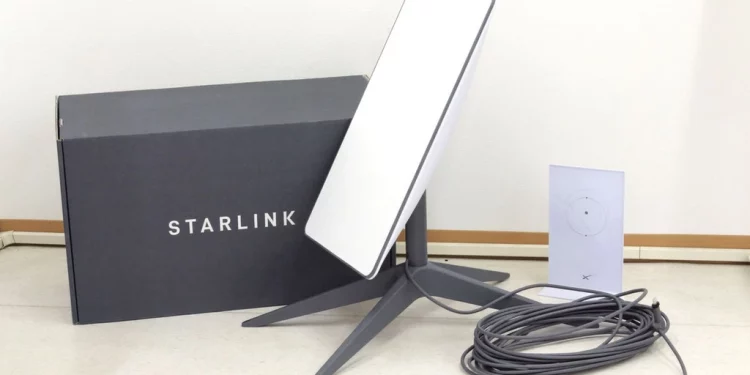Starlink has launched a rental scheme for its satellite internet hardware, allowing users to access high-speed connectivity for as low as KES 1,950 per month. This new offering complements Starlink’s existing high-speed internet package, which provides 50 gigabytes (GB) of data per month at KES 1,300, significantly undercutting prices from local telecom giants.
The rental option, which Starlink has introduced to cater to varied customer needs, is expected to pose a substantial challenge to existing market leaders. For instance, Airtel’s equivalent data package costs KES 3,000 per month, while Safaricom’s 45GB package is priced at KES 2,500. The stark difference in pricing may sway potential customers towards Starlink, given the added advantage of superior connectivity speeds offered by satellite technology.
While Starlink’s rental plan appears to be an attractive option, users should be aware of the terms and conditions associated with the service. Customers who opt for the rental package must return the hardware in its original condition, barring normal wear and tear, or face the full retail price charge. Starlink provides a return shipping label and specific instructions for the return process via its customer portal.
Starlink’s hardware, available for purchase at KES 45,500, inclusive of shipping and first month charges, enables users to access its internet services. In comparison, local telcos typically require only a SIM card activation for their internet plans, making Starlink’s model a notable departure. Despite the higher initial cost, the new rental scheme allows users to experience Starlink’s high-speed internet without a significant upfront investment.
The Starlink kit is readily available for purchase at various outlets, including supermarkets and retailers, for approximately KES 30,000. This contrasts with local providers, where obtaining similar equipment can be more challenging.
The impact of Starlink’s pricing strategy on Kenya’s internet market could be significant. The company’s entry into the rental market is likely to intensify competition, particularly as local providers are challenged to match Starlink’s speed and cost efficiency. With a growing demand for robust and reliable internet services, the new offering could lead to greater pressure on existing telecoms to innovate and improve their service offerings.
















